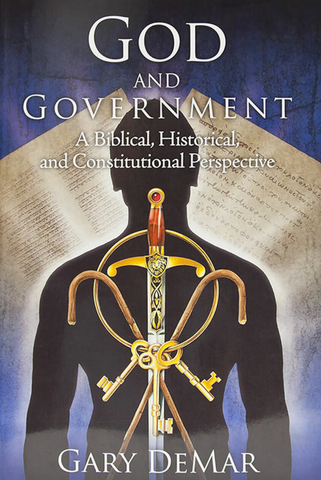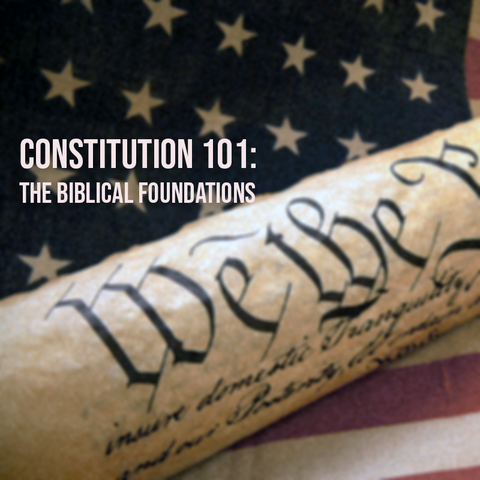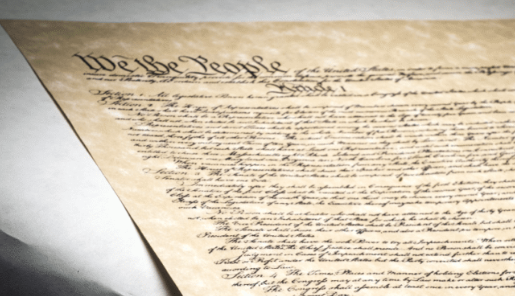The question that the Department of Government Efficiency (DOGE) should be asking is under what constitutional provision does the U.S. Agency for International Development (USAID) derive its authority? Some might point to the Preamble and the General Welfare clause in the body of the Constitution:
WE, THE PEOPLE of the United States, in order to form a more perfect union, establish justice, insure domestic tranquility, provide for the common defense, promote the general welfare, and secure the blessings of liberty to ourselves and our posterity, do ordain and establish this Constitution for the United States of America.
The General Welfare clause is one of the most misunderstood, debated, and misapplied phrases in the Constitution. “General Welfare” was clearly not intended to mean aid to individuals or programs as Madison stated in The Federalist, No. 41, the “General View of the Powers Conferred by the Constitution.” Madison noted that all forms of civil government are deficient and tend to expand beyond their intended limitations: “in every political institution, a power to advance the public happiness, involves a discretion which may be misapplied and abused.” Civil governing power is necessary in a stated limited way, but there is a tendency to expand the reach of government by appealing to “the public happiness.” Making the public happy for political gain is a never-ending temptation.

God and Government
With a fresh new look, more images, an extensive subject and scripture index, and an updated bibliography, God and Government is ready to prepare a whole new generation to take on the political and religious battles confronting Christians today. May it be used in a new awakening of Christians in America—not just to inform minds, but to stimulate action and secure a better tomorrow for our posterity.
Buy NowThe welfare the Constitution promotes benefits all citizens generally. The modern welfare system is an unequal redistribution of wealth from some people to other people. USAID is about specific welfare to entities far beyond the borders of the United States and for ideological and political interests that have skewed the social and political landscape.
The modern concept of welfare did not become part of American policy until the 1930s as part of Franklin Roosevelt’s “New Deal.”
By the time F. D. Roosevelt followed in the footsteps of [Otto] Bismark [of Germany] and Lloyd George [of England], the ground had been similarly well prepared in the United States, and the use made since 1937 by the Supreme Court of the “general welfare” clause of the Constitution naturally led to the adoption of the term “welfare state” already in use elsewhere [e.g., Germany and England].[1]
The Constitution uses the phrase “general welfare” in two places (Preamble and Art. 1, sec. 8:1a). We learn from Madison, one of the architects of the Constitution, that “general Welfare” is defined by the Constitution in that a semicolon follows the sentence in which the phrase appears. The list that follows defines the specifics of “general Welfare.” Read it to see if anything coming out of USAID applies.
Justice John Roberts explains Madison’s view:
Madison asserted it amounted to no more than a reference to the other powers enumerated in the subsequent clauses of the same section; that, as the United States is a government of limited and enumerated powers, the grant of power to tax and spend for the general national welfare must be confined to the enumerated legislative fields committed to the Congress. In this view the phrase is mere tautology, for taxation and appropriation are or may be necessary incidents of the exercise of any of the enumerated legislative powers.
This means that tax money (this was long before an income tax) could only be used for those items enumerated in the Constitution. The Constitution is hardly a document of enumerated powers if Congress can tax the citizenry for any program Congress deems to be “general Welfare.” Such a claim would nullify the Ninth and Tenth Amendments. Here is Thomas Jefferson’s warning in a letter to Albert Gallatin (16 June 1817):
You will have learned that an act for internal improvement, after passing both Houses, was negatived [vetoed] by the President. The act was founded, avowedly, on the principle that the phrase in the constitution which authorizes Congress “to lay taxes, to pay the debts and provide for the general welfare,” was an extension of the powers specifically enumerated to whatever would promote the general welfare; and this, you know, was the federal doctrine. Whereas, our tenet ever was, and, indeed, it is almost the only landmark which now divides the federalists from the republicans, that Congress had not unlimited powers to provide for the general welfare, but were restrained to those specifically enumerated; and that, as it was never meant they should provide for that welfare but by the exercise of the enumerated powers, so it could not have been meant they should raise money for purposes which the enumeration did not place under their action; consequently, that the specification of powers is a limitation of the purposes for which they may raise money. I think the passage and rejection of this bill a fortunate incident. Every State will certainly concede the power; and this will be a national confirmation of the grounds of appeal to them, and will settle forever the meaning of this phrase, which, by a mere grammatical quibble, has countenanced the General Government in a claim of universal power. … Without this caution, intrigue, negotiation, and the barter of votes might become as habitual in Congress, as they are in those legislatures which have the appointment of officers, and which, with us, is called “logging,” the term of the farmers for their exchanges of aid in rolling together the logs of their newly-cleared grounds.
“General Welfare” has become “the barter of votes” by creating programs that appeal to large segments of special interest groups. That’s why there are so many protestations from Leftists and Democrats. Note the following from Article 1, sec. 9:
No Money shall be drawn from the Treasury, but in Consequence of Appropriations made by Law; and a regular Statement and Account of the Receipts and Expenditures of all public Money shall be published from time to time.
This is exactly what the Department of Government Efficiency is trying to do: “Account of the Receipts and Expenditures of all public Money.”

Constitution 101: The Biblical Foundations
Constitution 101 is a complete education. In this course, you will learn from top legal and historical minds about this amazing document and what it really means to be a constitutional republic. Complete with audio, video, and text, Constitution 101 is filled with dozens of hours of learning. After watching, listening, and reading all of the material in this course, you will be ready to take on any skeptic making claims about our country and its founding document being "secular."
Buy Now[1] Friedrich A. Hayek, The Constitution of Liberty (Chicago, IL: The University of Chicago Press, 1960), 502.

